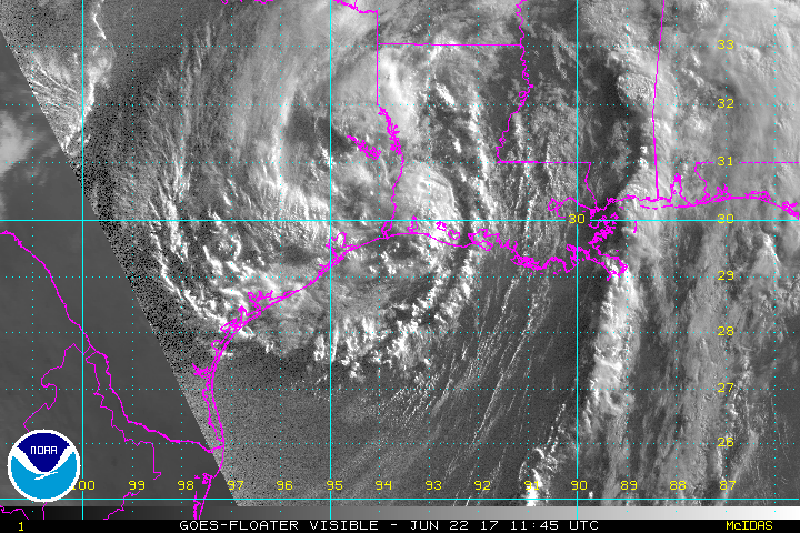(Bloomberg) — Tropical Storm Cindy was downgraded to a Tropical Depression Thursday, but not before the storm had curbed energy production in the Gulf of Mexico, disrupted shipping and forced workers off oil and gas platforms.
Based on data from offshore operator reports submitted to the Bureau of Safety and Environmental Enforcement as of 11:30 CDT on Thursday, personnel have been evacuated from a total of 39 production platforms, 5.29% percent of the 737 manned platforms in the Gulf of Mexico.
The storm has shut one-sixth of the oil production in the Gulf of Mexico, halted vessel unloadings at a major oil-import terminal and triggered a force majeure on a system that collects natural gas from offshore platforms.
“The biggest impact would be on shipping activity which will remain suspended through Friday,” said Andy Lipow, president of Lipow Oil Associates in Houston. “Storm sets off high winds and waves that will impact ability of ships to go through open water.”
Cindy probably won’t have much impact on natural gas production because so much has shifted to other parts of the country, said Stephen Schork, president of the Schork Group Inc. in Villanova, Pennsylvania.
“If this was 10 years ago, natural gas prices would probably be 3 dollars higher than they are,” Schork said. “What is interesting is it still has potential impact on crude oil.”
Gulf rigs and platforms account for about 17% of U.S. crude oil output and 4.1% of gas production. About 45% of petroleum refining capacity and 51% of gas processing is along the coastline.
Offloading Suspended
Vessel offloadings at the Louisiana Offshore Oil Port marine terminal were suspended. The rest of the company’s operations, including deliveries from its Clovelly, La., hub, were expected to continue, according to the company’s website.
While pilots have stopped guiding ships into Sabine Pass, which also funnels traffic to the ports of Beaumont and Port Arthur in Texas, the Coast Guard has decided to keep the Houston Ship Channel open. Sabine Pass is the site of the only active liquefied natural gas export terminal in the lower 48 states.
Anadarko Petroleum Corp. shut in two fields in the Gulf, and BP Plc was diverting crude from its platforms to an alternative pipeline after the Cameron Highway Oil Pipeline System, known as CHOPS, was closed.
Enbridge Inc. evacuated nonessential workers from some platforms in the Gulf. Royal Dutch Shell Plc suspended “some well operations” in the region, though production is unaffected, according to company spokesman Curtis Smith. BHP Billiton Ltd suspended nonessential operations and “demobilized” nonessential workers.
The storm had shut in 17% of oil production in the Gulf of Mexico as of 1:00 p.m. local time Thursday, according to the U.S. Bureau of Safety and Environmental Enforcement.
The Destin natural gas line declared force majeure on Tuesday, saying in a notice to shippers that it’s unable to provide transportation from all offshore receipt points because of the storm. Gas output in the Gulf dropped to a six-week low, according to data compiled by Bloomberg.
It’s been a year since the U.S. Gulf Coast took a storm hit. Tropical Storm Colin and Hurricane Hermine struck Florida last year. The last storm to reach the western Gulf was Tropical Storm Bill in June 2015.
Bloomberg News by Brian K. Sullivan





